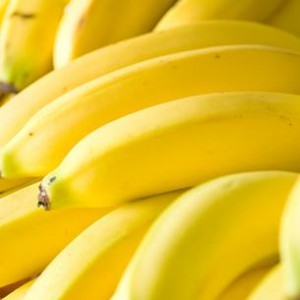
More evidence that low-calorie sweeteners are bad for your health
Studies show that artificial sweeteners can raise the risk of hypertension, metabolic syndrome, type 2 diabetes and heart disease, including stroke.

Natural Health News — Older women who eat foods with higher amounts of potassium may be at lower risk of stroke and death than those who consume less potassium-rich foods.
“Previous studies have shown that potassium consumption may lower blood pressure. But whether potassium intake could prevent stroke or death wasn’t clear,” said Sylvia Wassertheil-Smoller, PhD, study senior author and distinguished university professor emerita, department of epidemiology and population health at Albert Einstein College of Medicine, Bronx, New York
“Our findings give women another reason to eat their fruits and vegetables. Fruits and vegetables are good sources of potassium, and potassium not only lowers post-menopausal women’s risk of stroke, but also death.”
In a new study published in the American Heart Association’s journal Stroke, researchers studied more than 90,000 post-menopausal women, ages 50 to 79, over a period of 11 years.
They looked at how much potassium the women consumed, as well as if they had strokes, including ischaemic and haemorrhagic strokes, or died during the study period. Women in the study were stroke-free at the start and their average dietary potassium intake was 2,611 mg/day.
Good food is the key
Importantly, the results of this study are based on potassium from food, not supplements. Results showed that:
Among women who did not have hypertension (i.e. their blood pressure was normal and they were not on any medications for high blood pressure), those who ate the most potassium had a 27% lower ischaemic stroke risk and 21% reduced risk for all stroke types, compared to women who ate the least potassium in their daily diets.
Among women with hypertension (i.e. their blood pressure was high or they were taking drugs for high blood pressure), those who ate the most potassium had a lower risk of death, but potassium intake did not lower their stroke risk.
Researchers suggested that higher dietary potassium intake may be more beneficial before high blood pressure develops. They also said there was no evidence of any association between potassium intake and haemorrhagic stroke, which could be related to the low number of haemorrhagic strokes in the study.
Most of us don’t get enough
General dietary guidelines in the US recommend that women eat at least 4,700 mg of potassium daily, but says Wassertheil-Smoller, “Only 2.8% of women in our study met or exceeded this level. The World Health Organization’s daily potassium recommendation for women is lower, at 3,510 mg or more. Still, only 16.6% of women we studied met or exceeded that”
The study was observational and included only post-menopausal women. Researchers also did not take sodium intake into consideration, so the potential importance of a balance between sodium and potassium is not among the findings.
Researchers said more studies are needed to determine whether potassium has the same effects on men and younger people.
“Our findings suggest that women need to eat more potassium-rich foods. You won’t find high potassium in junk food.” said Wassertheil-Smoller
A vital nutrient
Potassium is part of every cell in the body, and life would be impossible without it.
However, potassium is often taken for granted, in spite of its role in maintaining fluid balance, and keeping your brain, nerves, heart, and muscles functioning normally on a constant basis.
Not eating enough fruits and vegetables is why many people don’t get enough potassium. So if you want to boost your intake try eating more white beans, leafy greens like spinach and brassicas like broccoli, potatoes (both white and sweet) baked in their skin, dried apricots, orange fleshed squashes, bananas, avocados, yoghurt, salmon and mushrooms on a regular basis.
How you cook your food also has an influence on the amount of potassium you get from food. For example, a boiled potato has almost half the potassium of a baked potato. To preserve potassium, eat fruits and vegetables raw, or roast or lightly steam them.

Please subscribe me to your newsletter mailing list. I have read the
privacy statement